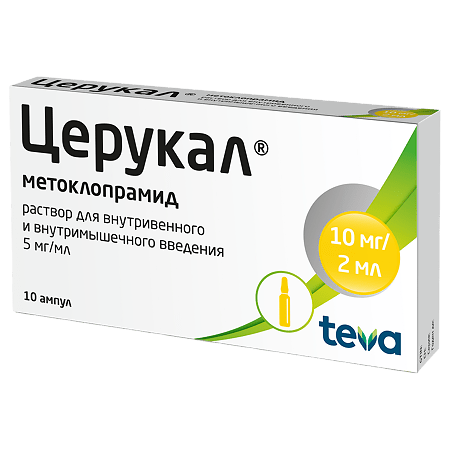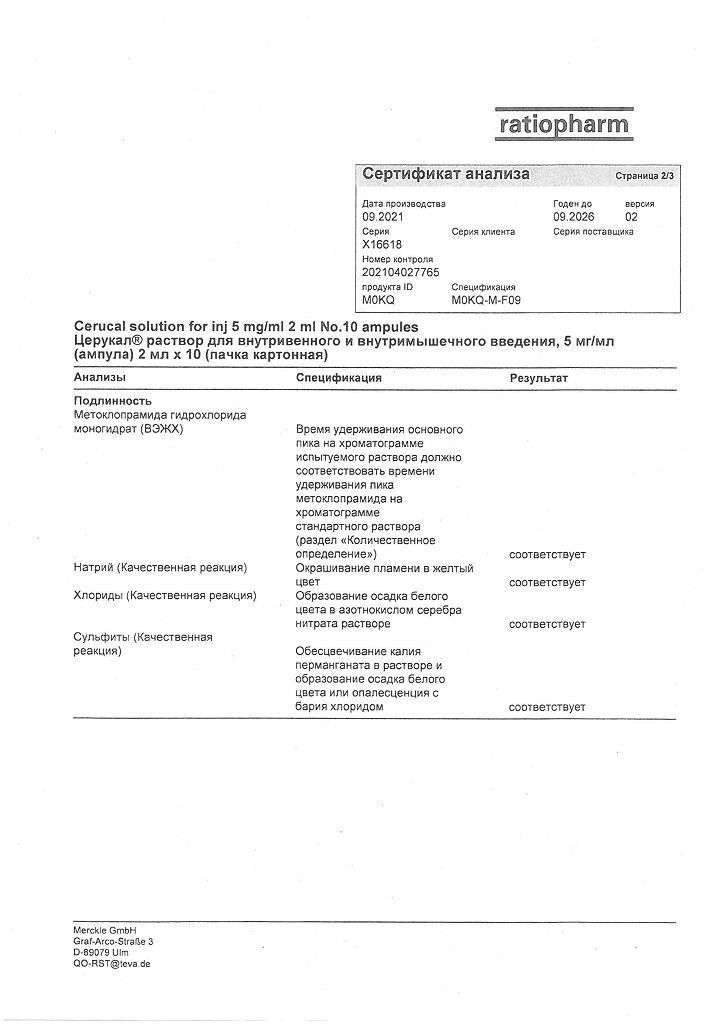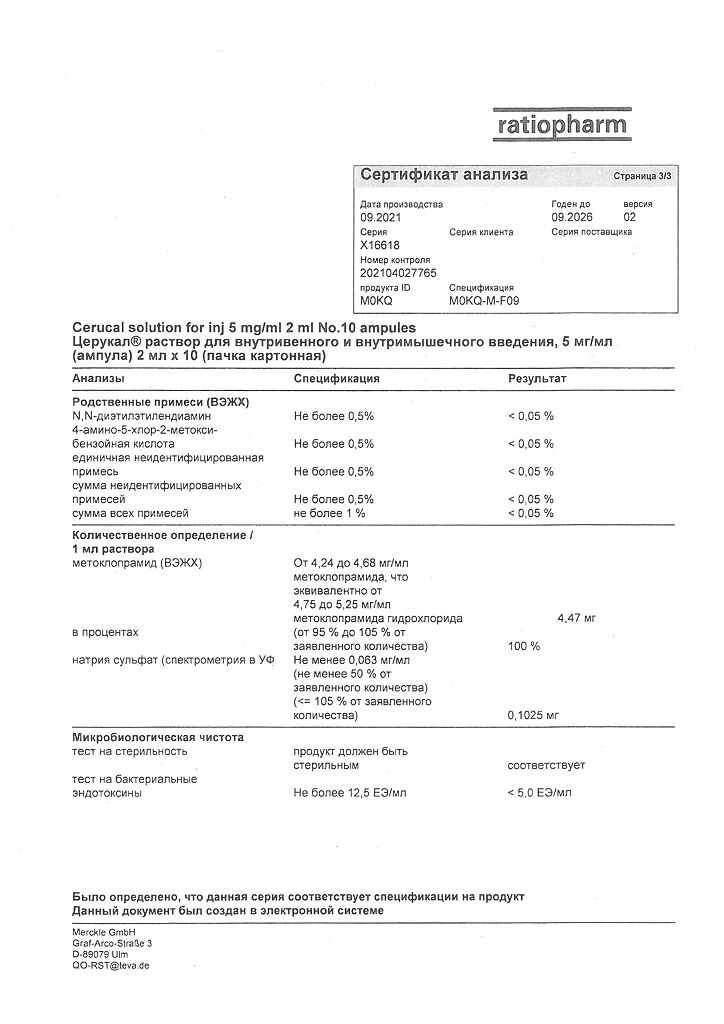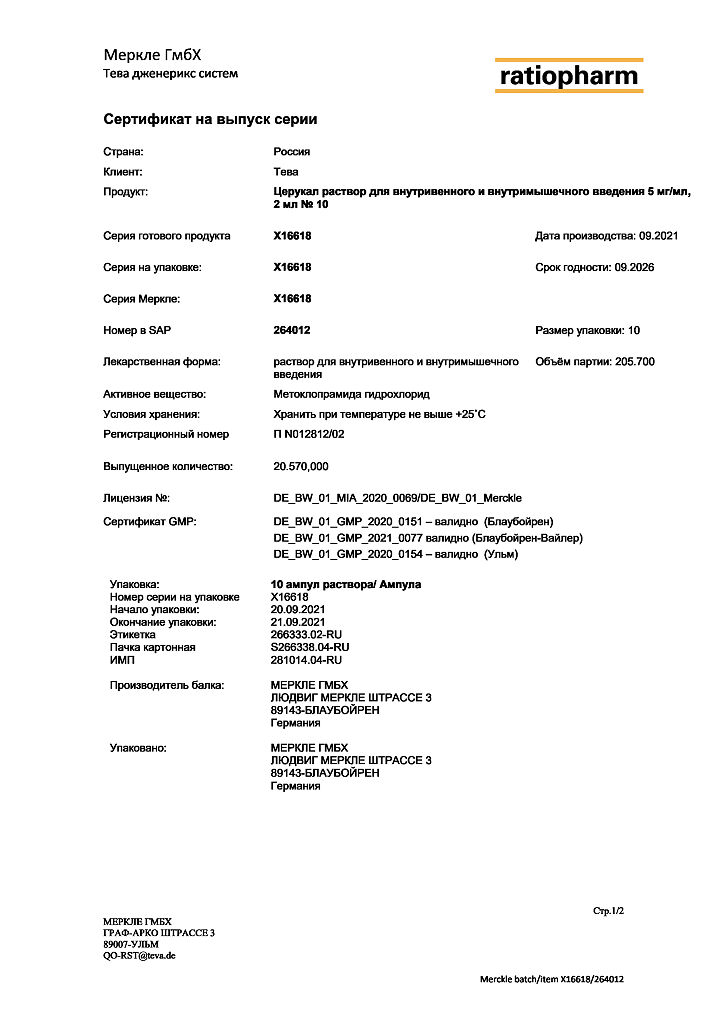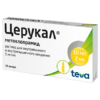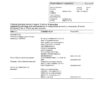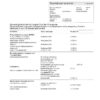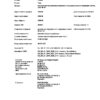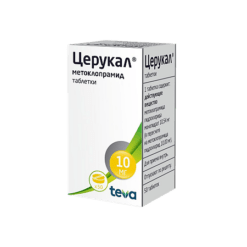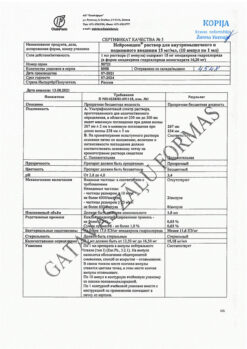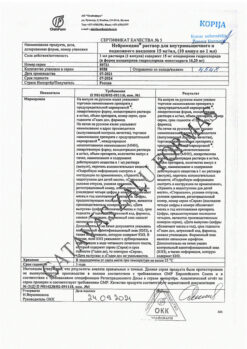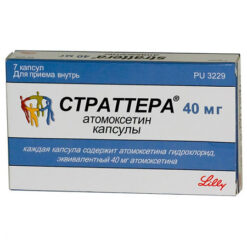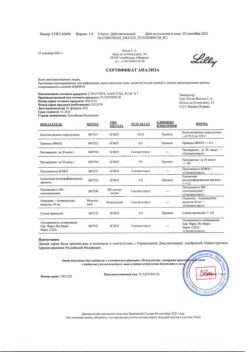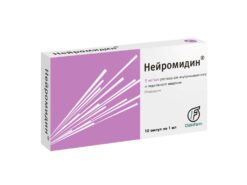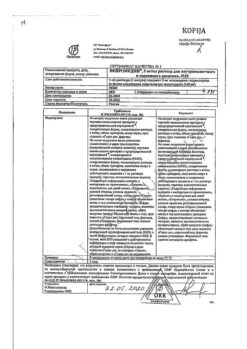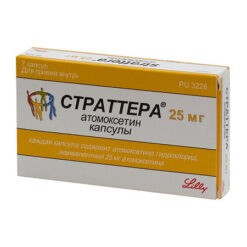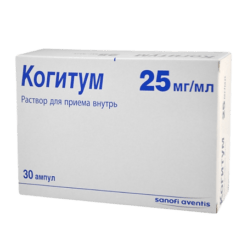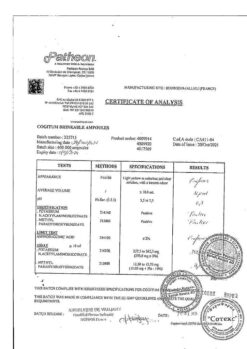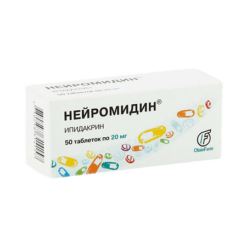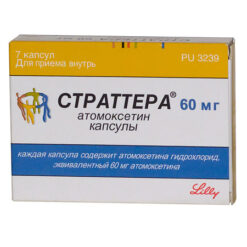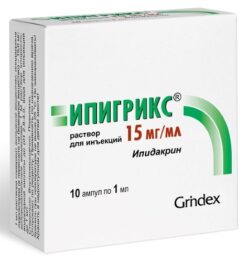No products in the cart.
Cerucal, 5 mg/ml 2 ml 10 pcs
€6.98 €6.11
Out of stock
(E-mail when Stock is available)
Description
CERUCAL is an antiemetic agent and is a specific blocker of dopamine (D2) and serotonin receptors. The mechanism of action is based on both central and peripheral effects of metoclopramide. Anti-emetic action is associated with blockade of brain dopamine receptors, which causes increase of irritation threshold of the vomiting center.
It has antiemetic effect, eliminates nausea and hiccups. It reduces esophageal motility, increases tone of the lower esophageal sphincter, accelerates gastric emptying, and also accelerates the movement of food through the small intestine without causing diarrhea.
Normalizes bile secretion, reduces spasm of the sphincter of Oddi, does not change its status, eliminates gall bladder dyskinesia. Stimulates the secretion of prolactin.
Pharmacokinetics
Vd is 2.2 – 3.4 L/kg.
Metabolized in the liver. The elimination half-life is from 3 to 5 hours, in chronic renal failure – 14 hours. It is excreted by kidneys during the first 24 hours unchanged and as metabolites (about 80% of single dose). It easily passes through the blood-brain barrier and is excreted with the breast milk.
Indications
Indications
— Vomiting and nausea of various origins;
— atony and hypotension of the stomach and intestines (in particular, postoperative);
— biliary dyskinesia, reflux esophagitis, functional pyloric stenosis;
— to enhance peristalsis during X-ray contrast studies of the gastrointestinal tract;
— gastric paresis in diabetes mellitus;
– as a means of facilitating duodenal intubation (to accelerate gastric emptying and movement of food through the small intestine).
Pharmacological effect
Pharmacological effect
CERUKAL – an antiemetic, is a specific blocker of dopamine (D2) and serotonin receptors. The mechanism of action is based on both the central and peripheral effects of metoclopramide. The antiemetic effect is associated with the blockade of dopamine receptors in the brain, which causes an increase in the threshold of irritation of the vomiting center.
Has an antiemetic effect, eliminates nausea and hiccups. Reduces motor activity of the esophagus, increases the tone of the lower esophageal sphincter, accelerates gastric emptying, and also accelerates the movement of food through the small intestine without causing diarrhea.
Normalizes bile secretion, reduces spasm of the sphincter of Oddi, does not change its status, eliminates gallbladder dyskinesia. Stimulates the secretion of prolactin.
Pharmacokinetics
Vd is 2.2 – 3.4 l/kg.
Metabolized in the liver. The half-life is from 3 to 5 hours, in case of chronic renal failure – 14 hours. It is excreted by the kidneys during the first 24 hours unchanged and in the form of metabolites (about 80% of a single dose). Easily penetrates the blood-brain barrier and is excreted in breast milk.
Special instructions
Special instructions
During the treatment period, it is necessary to refrain from driving vehicles and engaging in potentially hazardous activities that require increased concentration and speed of psychomotor reactions.
During treatment, patients are prohibited from drinking alcohol.
In adolescents and in patients with severely impaired renal function, monitor for the possible development of side effects; if they occur, the drug is discontinued.
Not effective for vomiting of vestibular origin.
Active ingredient
Active ingredient
Metoclopramide
Composition
Composition
1 ml of solution contains:
Active substance:
metoclopramide hydrochloride monohydrate 5.27 mg (equivalent to 5 mg metoclopramide hydrochloride);
Excipients:
sodium sulfite – 0.125 mg;
disodium edetate – 0.4 mg;
sodium chloride – 8 mg;
water for injection – 991.705 mg.
Pregnancy
Pregnancy
Cerucal is contraindicated for use in the first trimester of pregnancy.
The use of Cerucal in the second and third trimesters of pregnancy is possible only under strict indications.
If it is necessary to use Cerucal during lactation, the issue of stopping breastfeeding should be decided.
Contraindications
Contraindications
— Hypersensitivity to metoclopramide;
— pheochromocytoma (possible hypertensive crisis due to the release of catecholamines);
– intestinal obstruction, intestinal perforation and gastrointestinal bleeding;
— prolactin-dependent tumor;
– epilepsy and extrapyramidal movement disorders, first trimester of pregnancy and lactation, age up to 2 years.
With caution: with arterial hypertension, liver dysfunction, hypersensitivity to procaine and procainomide, children aged 2 to 14 years.
During the 2nd and 3rd trimester of pregnancy, the drug Cerucal is prescribed only for health reasons.
For patients with reduced renal function, the drug is prescribed in reduced doses.
Due to the sodium sulfite content, Cerucal should not be prescribed to patients with bronchial asthma with hypersensitivity to sulfite.
Side Effects
Side Effects
From the nervous system: sometimes there may be a feeling of fatigue, headaches, dizziness, fear, anxiety, depression, drowsiness, tinnitus; in some cases, mainly in children, dyskinetic syndrome (involuntary tic-like twitching of the muscles of the face, neck or shoulders) may develop. Extrapyramidal disorders may appear: spasm of the facial muscles, trismus, rhythmic protrusion of the tongue, bulbar type of speech, spasm of extraocular muscles (including oculogyric crisis), spastic torticollis, opisthotonus, muscle hypertonicity. Parkinsonism (tremor, muscle twitching, limited mobility, the risk of development in children and adolescents increases when the dose exceeds 0.5 mg/kg/day) and tardive dyskinesia (in elderly patients with chronic renal failure). In isolated cases, severe neuroleptic syndrome may develop.
With long-term treatment with Cerucal, elderly patients may develop symptoms of parkinsonism (tremor, muscle twitching, limited mobility) and tardive dyskinesia.
From the hematopoietic system: agranulocytosis.
From the cardiovascular system: supraventricular tachycardia, hypotension, hypertension.
From the gastrointestinal tract: constipation, diarrhea, dry mouth.
From the endocrine system: with long-term use of the drug, gynecomastia (enlargement of the mammary glands in men), galactorrhea (spontaneous leakage of milk from the mammary glands) or menstrual irregularities may occur; If these phenomena develop, metoclopramide is discontinued.
Interaction
Interaction
Incompatible with alkaline infusion solutions.
Reduced effect of anticholinesterase drugs.
Enhances the absorption of antibiotics (tetracycline, ampicillin), paracetamol, levodopa, lithium and alcohol.
Reduces the absorption of digoxin and cimetidine.
Strengthens the effect of alcohol and drugs that depress the central nervous system.
Antipsychotic drugs should not be prescribed simultaneously with metoclopramide to avoid a possible increase in extrapyramidal disorders.
May affect the effect of tricyclic antidepressants, monoamine oxidase inhibitors (MAOIs) and symptomatic agents.
Reduces the effectiveness of therapy with H2-histamine blockers.
Increased risk of developing hepatotoxicity when combined with hepatotoxic agents.
Reduces the effectiveness of pergolide and levodopa.
Increases the bioavailability of cyclosporine, which may require monitoring its concentration.
Increases the concentration of bromocriptine.
When cerucal is prescribed simultaneously with thiamine (Vitamin B1), the latter quickly disintegrates.
Overdose
Overdose
Symptoms: drowsiness, confusion, irritability, anxiety, convulsions, extrapyramidal movement disorders, dysfunction of the cardiovascular system with bradycardia and arterial hypo- or hypertension. In mild forms of poisoning, symptoms disappear 24 hours after discontinuation of the drug. Depending on the severity of symptoms, it is recommended to monitor the patient’s vital functions. Fatal cases of poisoning due to overdose have not yet been identified.
Treatment: symptomatic. Extrapyramidal disorders are eliminated by slow administration of biperiden (dose for adults – 2.5 – 5 mg; manufacturer’s recommendations should be followed). Diazepam may be used.
Storage conditions
Storage conditions
In a place protected from light, at a temperature not exceeding 25 °C
Shelf life
Shelf life
5 years
Manufacturer
Manufacturer
Merkle GmbH, Germany
Additional information
| Shelf life | 5 years |
|---|---|
| Conditions of storage | In a light-protected place, at a temperature not exceeding 25 °C |
| Manufacturer | Merkle GmbH, Germany |
| Medication form | solution |
| Brand | Merkle GmbH |
Other forms…
Related products
Buy Cerucal, 5 mg/ml 2 ml 10 pcs with delivery to USA, UK, Europe and over 120 other countries.

